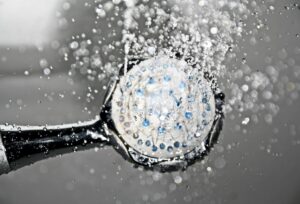What Is a Water Softener and Why Do You Need One at Home?
A water softener is a device designed to reduce water hardness by removing minerals such as calcium and magnesium, which are responsible for limescale buildup. At high concentrations, these minerals can cause long-term damage to pipes and appliances. Using a water softener is essential to maintain the efficiency of household appliances, protect your plumbing, and improve the overall water quality in your home.
How Does a Water Softener Work?
A water softener works through a process called ion exchange. This system treats hard water by passing it through a resin bed charged with sodium ions. During this process, calcium and magnesium ions in the water are exchanged for sodium ions, thus removing water hardness.
The Ion Exchange Process in Water Softeners
Ion exchange is the key to how a water softener operates. As water flows through the resin, the minerals that cause hardness—such as calcium and magnesium—are replaced with sodium. This turns hard water into softened water. Over time, the resin becomes saturated with minerals and must be regenerated, a process that uses a salt solution to restore the softener’s exchange capacity.
Types of Water Softeners: Which One Is Right for You?
There are several types of water softeners available on the market. The most common are ion exchange softeners, but there are also salt-free softeners. Salt-free softeners don’t remove minerals but rather modify them to prevent limescale formation, while ion exchange softeners provide a constant flow of soft water, even during regeneration cycles.
Benefits of Using a Water Softener at Home
Installing a water softener at home offers multiple benefits, not only improving water quality but also protecting your appliances and reducing energy consumption.
Protection for Appliances and Pipes
Hard water can lead to limescale buildup in pipes and appliances like washing machines, water heaters, and dishwashers. Limescale acts as a barrier, reducing appliance efficiency and causing premature failure. Installing a water softener solves this problem, extending appliance lifespan and avoiding costly repairs.
Improved Energy Efficiency
When heating systems and appliances are free of scale, they operate more efficiently, which results in lower energy consumption. For instance, a scale-free water heater heats water faster using less energy, which translates into lower energy bills.
How to Choose the Best Water Softener for Your Home
Choosing the right water softener depends on several factors such as the water hardness in your area, your household size, and water usage. Below are the key points to consider.
Factors to Consider: Size, Salt Consumption, and Efficiency
First, it’s important to know the water hardness level in your home to select a softener with the appropriate capacity. You should also consider the unit’s salt consumption, which varies between models and affects maintenance costs. Finally, the system’s energy efficiency is crucial to minimize long-term operating costs.
Comparison Between Salt-Based and Salt-Free Softeners
Traditional water softeners use salt for the ion exchange process, while salt-free softeners use alternative methods like template-assisted crystallization (TAC). Although salt-free systems require less maintenance and don’t add sodium to water, salt-based softeners are still more effective in reducing hardness in areas with extremely hard water.
Impact of Softened Water on Health and Hygiene
Softened water not only protects your appliances but also has direct benefits for your health and personal hygiene.
Benefits for Skin and Hair
Hard water can leave skin dry and hair dull due to the minerals present. Softened water is gentler on the skin and hair, providing better hydration. Many people notice improved softness and manageability in their skin and hair after switching to softened water.
Better Performance of Detergents and Cleaning Products
Hard water can reduce the effectiveness of detergents by forming a layer of mineral residue. With softened water, cleaning products perform better, resulting in cleaner clothes and spot-free dishes. You may also use less detergent, as soft water requires a smaller amount for the same results.
Maintenance and Care for a Water Softener
Like any appliance, a water softener requires maintenance to ensure it operates correctly. Here’s an overview of the basic care it needs.
How Often Should the Resin Be Regenerated?
The frequency of resin regeneration depends on the water hardness level and usage. Typically, this process should be done every few days or weeks, depending on household water consumption.
Signs Your Water Softener Needs Maintenance
If the water starts to feel hard again or your appliances show signs of limescale buildup, it may indicate that the softener needs maintenance or resin regeneration. It’s also important to regularly check the salt levels and ensure the system is working properly.
How Much Does It Cost to Install a Water Softener?
The cost of installing a water softener can vary depending on the type of system and your household’s needs.
Frequently Asked Questions About Water Softeners
- How much salt does a softener consume?
- Salt consumption depends on the softener’s size and household water usage.
- Is any special maintenance required?
- Besides regular resin regeneration, it’s important to check salt levels and perform annual system maintenance to ensure efficiency.
Contact us and we’ll advise you on the best water softener system.



